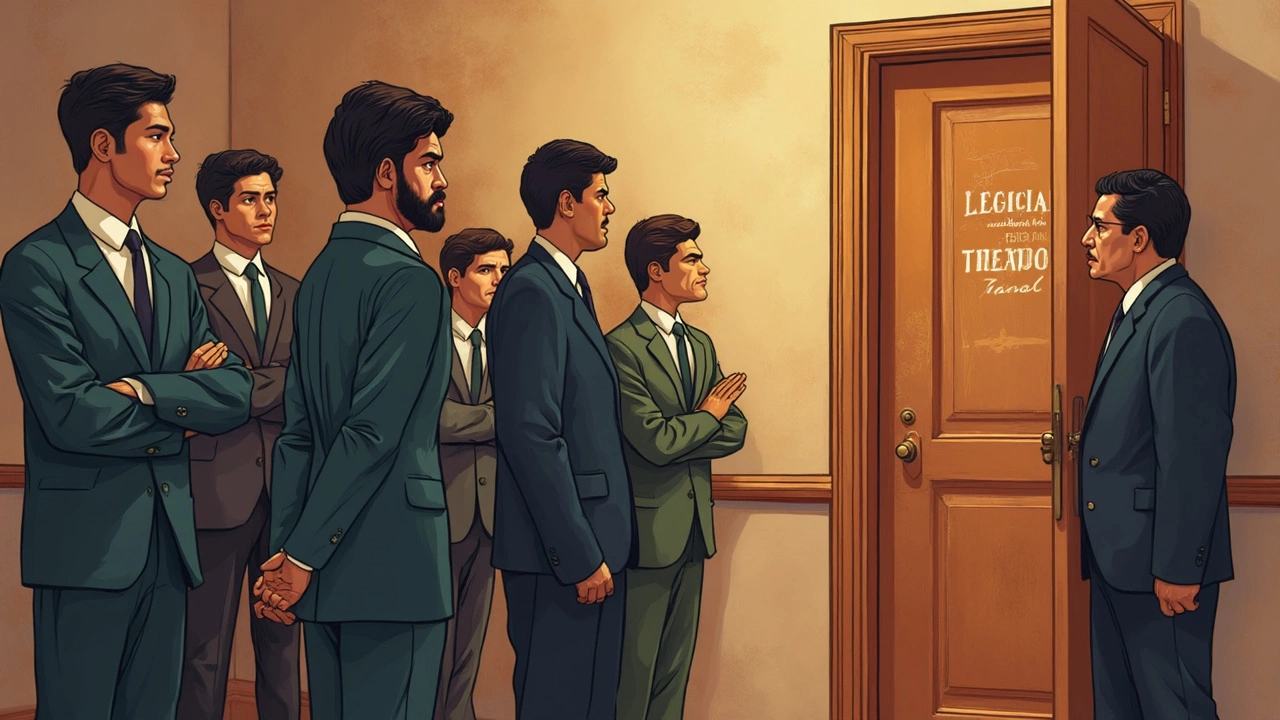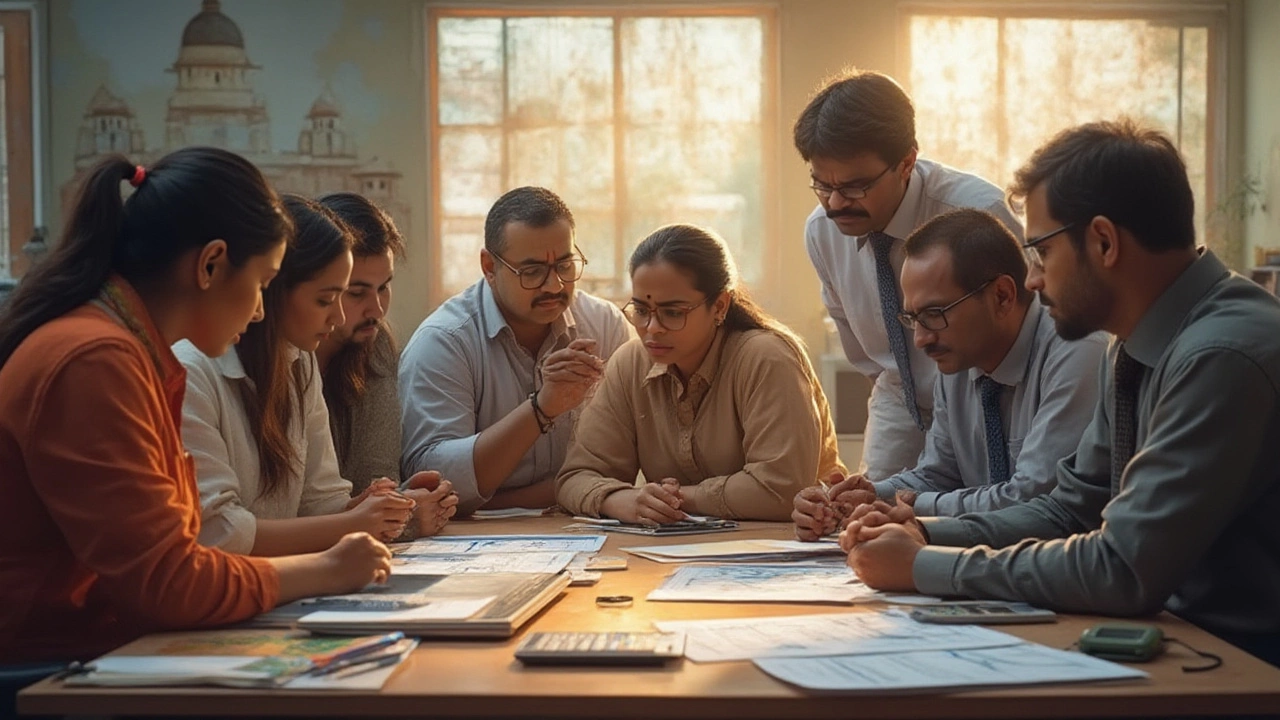Imagine prepping hard for a job, nailing the first interview—and then finding out there’s another round. And another. If you’re wondering how many interviews it actually takes to land a government job, you’re not alone. The answer isn’t always straightforward, but one thing’s certain: government jobs rarely hire after a single chat.
Most government jobs involve at least two interviews, but three or even four rounds aren’t unusual, especially for higher-level positions. You might deal with written assessments, panel interviews, HR rounds, and sometimes even technical or case studies—and these aren’t just for show. Every round knocks out a chunk of candidates and digs deeper into what you know, how you think, and if you’ll fit in.
- Why So Many Rounds?
- Breakdown of Interview Stages
- What to Expect at Each Step
- Tips to Ace Every Interview
Why So Many Rounds?
Government hiring isn’t just about finding someone qualified. They have to prove—on the record—that every hire is fair, unbiased, and ready for all the job demands. This means more interviews and checks than most private sector roles. They’re serious about transparency, diversity, and making sure they don’t miss any red flags along the way.
The multiple interview rounds aren’t random. Here’s what usually drives the process:
- Government jobs are often protected positions, so hiring mistakes can get costly and complicated to fix.
- Agencies look for strong technical skills and “fit” with public service values, so there’s often a split between skill-based and personality-based interviews.
- The panel system—where several people interview you at once—makes things more objective. Everyone’s score counts.
- Security clearances, background, and reference checks pile on extra steps, especially in federal jobs.
Some agencies even do “structured interviews,” asking every candidate the exact same questions. This makes it easier to compare you with everyone else fairly.
Here’s a look at what the process might actually include, based on real agency stats from 2024:
| Step | Purpose | How Many Rounds? |
|---|---|---|
| Written Test/Assessment | Screen technical skills | 1 |
| Panel Interview | Check teamwork, fit, problem-solving | 1-2 |
| HR/Policy Interview | Discuss rules, conduct, workplace habits | 1 |
| Final Interview | Agency heads or top management sign off | 1 |
Put it all together, and you can see why just getting an offer letter can sometimes take three months or more. That steady paycheck and job security aren’t easy to grab—they want to make sure you really are the right pick for the long haul.
Breakdown of Interview Stages
The government jobs interview process isn’t just about “showing up and talking.” There’s a clear method to the madness. While every agency does things their way, here’s how it usually plays out if you’re aiming for a central or state government job.
For most roles, you can expect at least three main interview stages, sometimes more. Here’s a breakdown of what typically happens:
- 1. Screening/Initial Interview: This is often over the phone or video. They want to check if you meet the basic qualifications and if your background matches what the job needs. HR or a recruiter usually runs this round. It’s short, but skipping it isn’t an option.
- 2. Panel Interview: Expect this to be face-to-face or virtual. You’ll meet with a group—sometimes 3-5 people from different departments. They test your technical knowledge, problem-solving, and soft skills. Each interviewer has a set list of questions, making it more structured than most private jobs.
- 3. Final Interview (or Department Head Round): You might sit down with a higher-up like a department lead or director. This isn’t just a formality—they’re looking for signs you’ll fit the team and can be trusted with the responsibilities. They might dig into your past decisions, judgment, and experience on the spot.
- Bonus Rounds: For certain posts (think administrative services or law enforcement), you may face assessments like written tests, psychometric evaluations, or even group discussions before the official interviews start. Some agencies finish off with background checks or medicals before the offer.
Here’s how these stages stack up timewise and who you’ll typically meet at each:
| Stage | Who’s Involved | Avg. Time |
|---|---|---|
| Screening/HR Round | HR/Recruiter | 15-30 min |
| Panel Interview | 3-5 Panelists | 45-90 min |
| Department Head | Director/Lead | 30-60 min |
| Assessments (if any) | Various (Written, GD) | Varies (30-90 min) |
It’s not unusual to wait 2-4 weeks between each step—sometimes longer. Government agencies love their paperwork. If you make it to the end, you’ll know you cleared a real marathon.

What to Expect at Each Step
The government jobs interview process comes in layers—each one serving a different purpose. You won’t just breeze through a single chat; you’ll go through various hurdles, each meant to test something new. Here’s a typical play-by-play of what you’re likely to deal with.
- Screening (Initial) Interview: Usually done over the phone or video. Expect basic questions about your background, why you applied, and your knowledge of the agency. They’re checking if you meet the must-haves and if it’s worth bringing you in for more serious rounds.
- Technical or Written Assessment: Depending on the role, you might get a test before or after your screening. This could be a multiple-choice exam, short answers, or a practical task linked to the job. For example, if you’re going for a policy analyst post, expect a data interpretation task or essay.
- Panel Interview: The classic. Usually three to six people from the department or HR. This is where you’ll get scenario questions like “Describe a time when…” or “How would you handle…?” They’re looking at your soft skills, judgment, and how you’ll fit in their team. Some candidates joke it feels like an X Factor audition, but without the talent show lights.
- Final Interview or Director’s Round: Higher-ups get the final say. They may be less interested in technical details and more focused on what you’d add to the team. This is also where salary, benefits, and fit get discussed. It’s usually one-on-one or a smaller, senior panel.
Here’s a quick look at the different interview stages for a sample government job application, based on recent HR data:
| Stage | Who Runs It | Typical Duration | What They're Checking |
|---|---|---|---|
| Screening Interview | HR Recruiter | 20-30 minutes | Eligibility, communication, fit for further rounds |
| Assessment/Test | Automated/Panel | 30-90 minutes | Job-specific skills, technical know-how |
| Panel Interview | Hiring Panel | 45-60 minutes | Problem-solving, soft skills, situational answers |
| Final Interview | Director/Senior Manager | 30-45 minutes | Cultural fit, motivation, negotiations |
Every step has its own stakes. If you ace the early rounds, don’t let your guard down. Each stage is another chance for them to filter candidates. Always prep for what’s next: review common questions for the round you’re facing, know your resume inside out, and be ready with real-world examples from your experience. Practicing with a friend or even recording yourself helps—try explaining to someone who doesn’t work in your field for a real challenge. And yes, always keep an eye on your email: sometimes the gap between interviews can stretch out for weeks, so patience is your best friend.
Tips to Ace Every Interview
Government job interviews take grit and a solid plan. Unlike the private sector, these interviews often follow a set structure, and the panel can include multiple people from different backgrounds. You’ve got to impress all of them, not just one hiring manager. Here’s what actually works when you want to stand out—and get through every round.
- government jobs interview questions are often situation-based. Study the STAR method (Situation, Task, Action, Result) to answer behavioral questions clearly. It helps you show, not just tell, how you handle real problems.
- Always read the official job description. Government interviews often focus on very specific duties and skills. Expect to be quizzed on the requirements listed—and even on obscure bullet points at the bottom.
- Prepare detailed documents ahead of time. Bring multiple copies of your resume, official transcripts, and any certificates. Some panels want to see proof for every claim you make. I once watched a hopeful lose out because he forgot a work experience letter.
- They love numbers. When you talk about achievements, use stats. For example: “Improved processing speed by 27% in six months.” It’s more convincing than just saying you made things faster.
Practice makes a difference, but so does knowing how to handle panel dynamics. You could meet five interviewers in a room, all taking turns. Make eye contact, answer directly, and avoid rambling—short, punchy stories win every time.
Some government jobs require a test or written assignment before or after the chat. This isn’t about tricking you—it’s because over 60% of applicants pass initial screening but only half are actually ready for technical duties, according to recent HR reports. Sharpen your relevant skills (like Excel for admin jobs or policy analysis for research roles) before every round.
| Stage | What They Check | Common Pitfall |
|---|---|---|
| Screening Interview | Basic skills, fit for role | Boring answers, little enthusiasm |
| Technical/Case Round | Role knowledge, problem-solving | Missing details, vague responses |
| HR Interview | Values, culture fit | Generic responses, lack of examples |
| Final Panel | All of the above, pressure handling | Not backing up claims, appearing nervous |
A few tricks go a long way: double-check the exact location and time (sometimes government buildings have confusing layouts), iron your clothes, and arrive at least 20 minutes early—security checks can take forever. If offered, always ask a smart question at the end. It shows you care about the job, not just getting hired.
You don’t need to be perfect, but show up prepared and real. That’s what gets people hired, even over someone with fancier degrees.



